10 things you can learn as a prepper from the Ukraine invasion
As a prepper, you should be prepared for any invasion. The Russian invasion has shown how quickly it can happen. These 10 things help with survival.
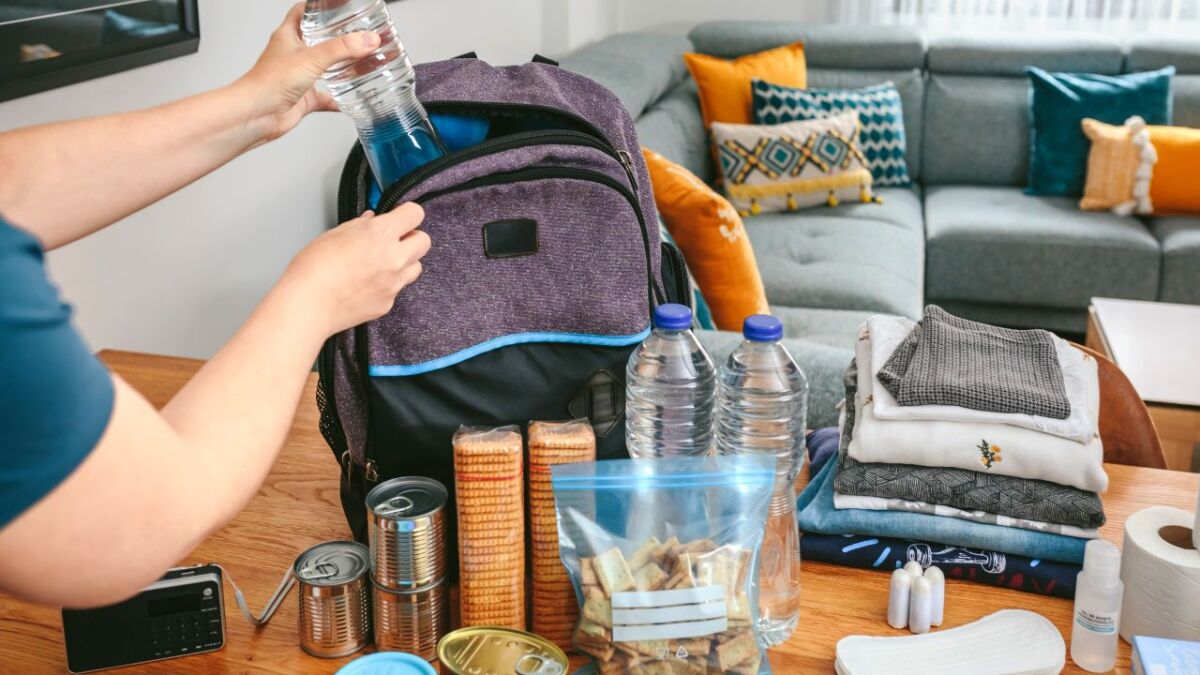

From Martin Gebhardt. Check out my “About me” page.
👉 The key facts from this guide
- Keep a supply of water and food for emergencies to be able to act quickly.
- Make sure you always have access to cash, as digital payment systems can fail during crisis times.
- Prepare your medical care and have a first aid kit ready.
- Always have a full tank of gas in case you need to travel a greater distance in an emergency.
- Check the infrastructure surrounding you to identify potential dangers and resources.
- Don't stay in one place longer than necessary - if the situation requires it, leave your home.
- Prepare your family and create an emergency plan that every family member knows.
- Have your bug-out bag ready and pack it with the most important survival items.
- Learn survival skills to be able to survive during crisis times.
- Always have a backup plan and remain flexible as situations can change quickly.
With the invasion of Ukraine in 2022, a long-standing feeling of security and protection disappeared for many people in Europe.
The world watches in shock as a war breaks out right on our doorstep.
However, even for preppers, this invasion becomes increasingly significant over time and emphasizes the importance of preparation.
Yet, fear or uncontrolled panic should not prevail.
To ensure that you can keep a cool head even in these times and are always prepared, you will learn important lessons here that you should learn from the invasion of Ukraine without losing sight of the big picture.
1. Keep a stockpile of water and food for evacuation
As the invasion of Ukraine has shown, sometimes things have to move quickly. Therefore, make sure that you always have a supply of food that you can store quickly and safely in your evacuation gear.
Primarily, you should focus on foods that bring many nutrients despite their low weight.
Ideally, prepare a stock for 72 hours so that you are also provided for a multi-day escape. Optimal foods include:
- Nuts
- Protein bars
- Dried fruits and vegetables
- Oatmeal
- Cookies
- Canned vegetables/meat
- Freeze-dried food/MREs
There are many other extremely long-lasting foods that I have listed for you in this guide here.
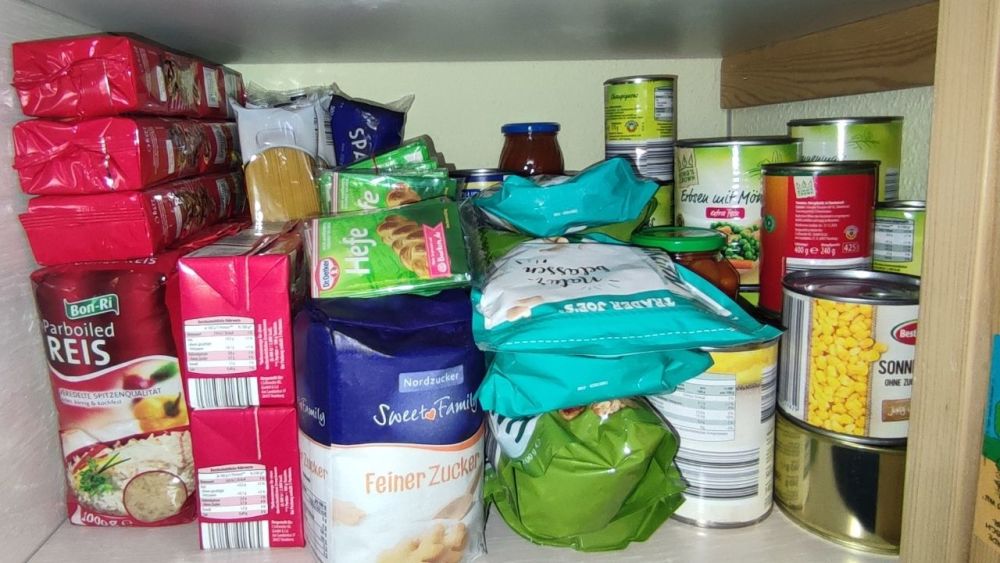
You see, the focus here is primarily on combining as little weight as possible with the highest energy density to maximize survival capacity.
After all, your primary goal is to reach the next safe place unharmed and not starving.
And if you think now that all of this must cost a lot, then I recommend my guide "Prepping on a Small Budget? Have you taken all the preparations?".
Furthermore, you must never neglect your water supply at any time. Although you won't be able to reduce the extra weight here too much, you can at least provide for potential replenishment.

Tablets for cleaning water are particularly useful. If you ever run out of liquid supplies, you can use these little cleaning devils to get rid of any bacteria, viruses, and parasites that might be in the water.
This way you can also drink well, river or seawater. Or you can get yourself a water filter (you can find my buying guide here).
Tip: Calculate your water emergency supply per person here
2. Always have access to cash
You may be wondering what access to cash has to do with the invasion of Ukraine. But if you think about it more closely, you will realize how important it is to always have cash at hand.
You probably currently pay more with debit or credit card. However, this payment method requires a functioning infrastructure that enables you to make digital payments. If this infrastructure is no longer available, for example due to war, the digital payment system also fails.
Even in the event of prolonged power outages (blackouts), things will become tight over time. Without cash, you will not be able to purchase all the necessary utensils that you need. Some gas stations may still be able to supply the population with gasoline, but card payments are no longer possible.
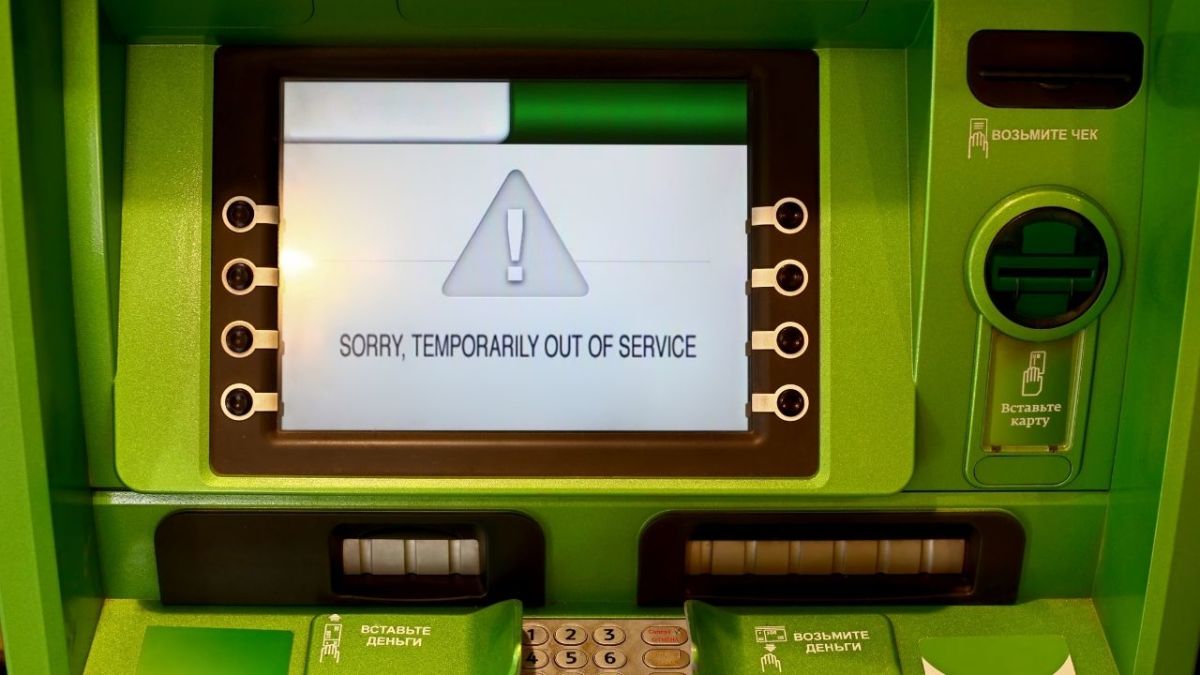
So, before you can neither withdraw cash from the bank nor pay digitally, make sure that you always have access to an appropriate amount of cash that you can use in case of emergency.
3. Prepare for your medical care
As you are surely aware, injuries and illnesses can occur, especially in exceptional scenarios. You should also always be prepared for this.
Make sure to always have a first aid kit ready that contains everything you require, such as bandages, swabs, a tourniquet, and similar first aid tools. If you have specific individual medical needs, of course, also consider these.

If you are diabetic, for example, you should always have access to your insulin and a way to measure your blood sugar. If you are severely allergic, possibly to insect bites, always carry your antiallergic medication with you, especially if you are outdoors during the emergency.
Read also
6 medications you should not leave the house without in an emergency - Imagine the emergency occurs, and you can only bring a few medications in your bug-out-bag. What medications could you not live without?
4. Always have a full tank
The reason for this tip should be clear: the fuller the tank, the further you can go on day X. Please keep in mind that you won't be the only one wanting to flee from your immediate surroundings in case of an emergency.
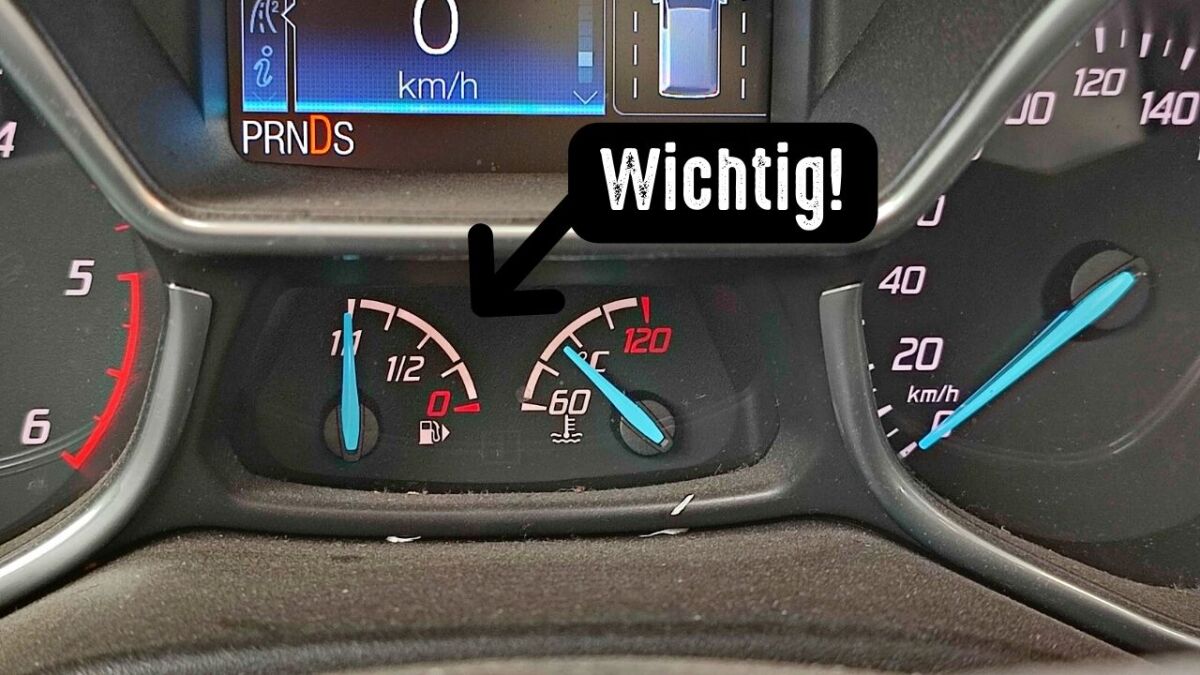
If you have to unnecessarily fill up your tank on that day, it will cost you a lot of time. The queues at the gas stations will likely be unbearable, and the situation will be a complete mess – something you simply can't afford in this situation.
Even if that means you need to fill up more often, it will give you a big advantage in an emergency.
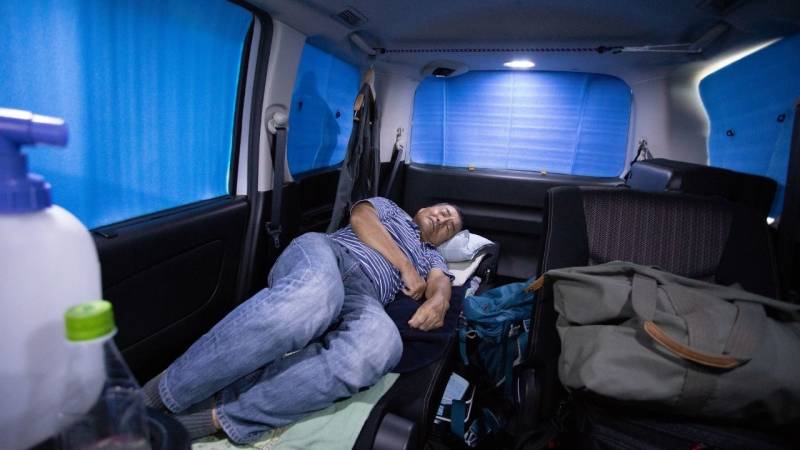
5. Check the infrastructure around you
Many preppers strongly underestimate this point. You will likely put all your efforts into internal protective measures – things that only concern you and your immediate surroundings.
But have you ever thought about which external factors can play a significant role? Check carefully which significant infrastructure is located near you. The reasons why you should do this are manifold.
- Supermarket: First, you should know where in case of emergency, especially supermarkets are located, which provide important food for you, the same goes for pharmacies, doctors and other buildings with medical focus.
- Transportation networks: Furthermore, it may play a role for you where the public transportation networks in your vicinity run. These can lead you to significant junctions, even without the use of buses and trains, if you have difficulty orienting yourself.
- Essential targets: In case of war, you should also know whether strategically critical targets are located in your vicinity. Do you live near barracks, chemical factories, or near infrastructure critical for communication? If yes, then you know that targeted strikes on such areas are not uncommon. Be and remain prepared.
- Geological risk factors: You should also be aware of the positions of dams, bridges, volcanoes, or other geological risk factors. You will not always be able to avoid living in risk areas. Nevertheless, you should always know where you can take refuge.
6. Do not stay longer than necessary
Following this advice is probably the toughest for many preppers, which is more than understandable. If a sudden war breaks out in your country, or you become a victim of a natural disaster, you should not stay on site longer than absolutely necessary.
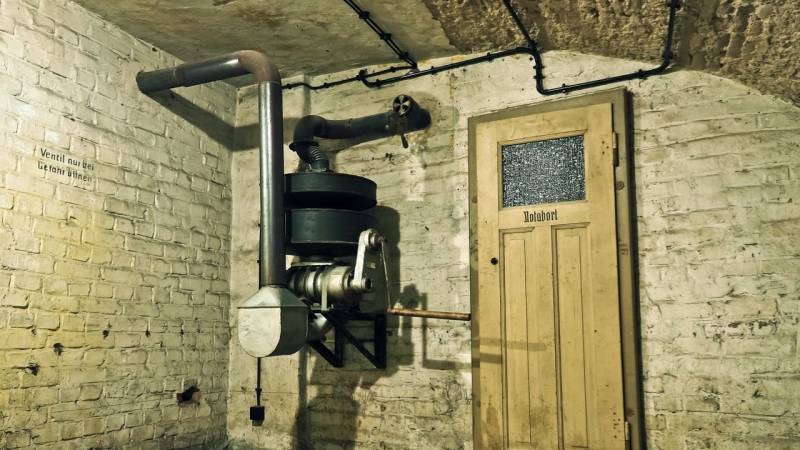
Yes, most likely it will break your heart at this moment to leave your lovingly and meticulously built home and possibly leave it to certain destruction. Every prepper who has been busy enough to equip their home for a long time will be able to understand your feelings.
However, this tip will save your life in an emergency. Prepping also means realistically assessing situations.
The fact is: You will not be able to defend your home against natural disasters or artillery strikes or tank ammunition if it comes to the worst. However, if you flee early enough, you will protect yourself and your family from possible certain death.
Do not waste time and resources. Be prepared in time and leave while the opportunity still exists.
7. Prepare your family
Another reality that must be acknowledged as a prepper is the following: You may not be with your family when it starts. You may be at work, shopping or simply absent in another way.
If this is the case, of course, your family still needs to know what to do. For this reason, you should spare no effort to involve children and partners in your plans so that they can act independently in case of emergency.
Take your family aside in a quiet moment and sit down with them to discuss everything. Ideally, create an emergency plan together that every family member knows. Ideally, this plan should include information such as:
- Contact details of relatives, police, fire department, school, and workplace
- The emergency meeting point if the family should be separated
- Agreed escape routes
- Hideouts for important equipment, supplies, and tools
8. Have your bug out bag ready
If there is one lesson you should learn from the invasion of Ukraine, it's this: a sudden crisis can occur anytime, anywhere, and requires quick action.
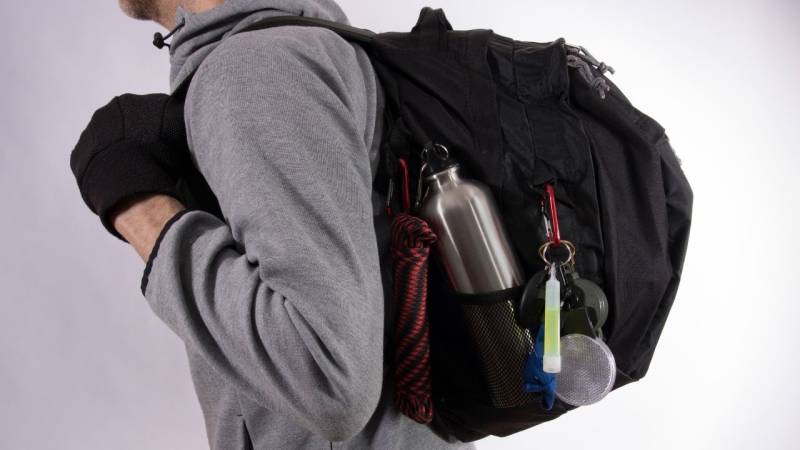
That's why it's crucial to always be prepared. A bug out bag can be a form of life insurance for you, as it ensures a quick departure with comprehensive supplies.
If you want to know how to pack a bug out bag, what to look out for, and where your priorities should lie, just read this article: What is a Bug Out Bag - The Most Comprehensive German Guide (+PDF packing list).
There you will find all the valuable tips and tricks you need to pack the optimal bug out bag today.
9. Learn survival skills
This may sound cliché and is probably recommended by almost every survival or prepping guide. But here we go a little deeper - you will understand what is meant.
Of course, it would be extremely helpful if you mastered the basic skills, such as:
- First aid
- Navigation
- Making fire
- Building a shelter
- Self-defense
Practice these skills and pass them on to your family, they will thank you for it.
However, there are other skills and characteristics that will greatly facilitate survival in such extreme situations.
If you find yourself in urban terrain, which is more likely in Germany, you can rely on the tips in this article: 13 underestimated survival skills in the city.
As already mentioned, survival skills are not the only important factor, but also survival traits.
The better you acquire these traits, the higher the likelihood that you will survive a disaster more or less unharmed. You can find the corresponding article here: The necessary attributes of a survival artist.
10. Always have a plan B and stay flexible
No matter how many plans you make over time, one day reality will catch up with you. In military jargon, it is called "living in the situation", which means that constant adaptability is an absolute must.
For example, if your main plan is to escape in an emergency situation over a certain bridge or use certain road networks, it will only work if they are still intact.
If this is not the case, your entire escape route could be lost, unless you take "Living in the Situation" to hear and adjust your plans.
Do not just prepare a single, rigid plan, but remain flexible.
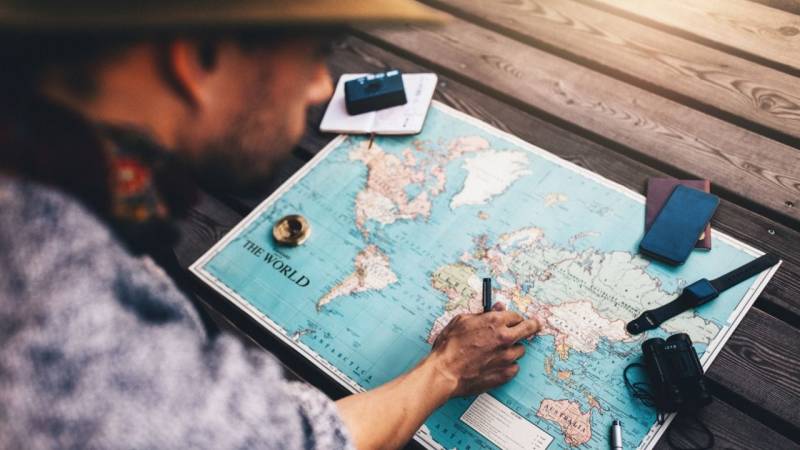
Plan B does not mean that you need X plans for every situation. You should simply ensure that your approach remains flexible and versatile in case of emergency.
So don't turn your plan into a complicated mathematical formula that only works when every step is strictly followed in order and nothing else gets in the way. Because that will hardly ever work.
This also applies to your family's emergency plan. Keep it simple and easy to understand so that a thread runs through it that every family member can follow. It can then be carried out according to the principle of "decentralized command".
Decentralized command in this context means that while there is a basic emergency plan that everyone adheres to, your family independently decides how this emergency plan is implemented based on their situation.
As bitter as it may be: you will never be able to plan or control all circumstances, so stay flexible in your preparation.
Conclusion: Early preparation and flexible execution of plans give you an advantage and significantly increase your chances of survival!
The earlier you prepare for a situation like the invasion of Ukraine, the better.
There is no such thing as "too early" for prepping, only "timely" or "too late", so it's better to start preparing now.
And in fact, there are warning signs that it may be too late.
Furthermore, even with all your preparation, you must not neglect your adaptability and the flexibility of your plans. These two qualities give you the ability to quickly recognize, understand and react to situations.
So don't panic and start imagining horror scenarios that may or may not happen daily.
Be aware that something like the invasion of Ukraine could happen here too, but you are doing your best to be prepared for it.
Stay aware and realistic, involve your family in your thoughts, and create a plan together that can save your lives.
If you are not very experienced with prepping, that's not a problem. Just check out the linked articles where you can find helpful tips for all aspiring preppers: 13 things a new prepper should take care of and The first 13 things a new prepper should learn.


Author of the guide
Martin Gebhardt
Hey, I'm Martin. On my blog, you will learn the basics and numerous details about living in the wild. I think survival, bushcraft and the good life in nature are the keys to happiness. Find me here on Instagram or on YouTube. You can find more about my mission on the About Me page.
Was this guide helpful?
9 people found this guide helpful.
5.00 out of 5 points (9 Ratings)
Comments (0)
This post may contain affiliate links. So if you click on the links and make a purchase, I will receive a small commission at no additional cost to you. Click here, to learn more about it.



